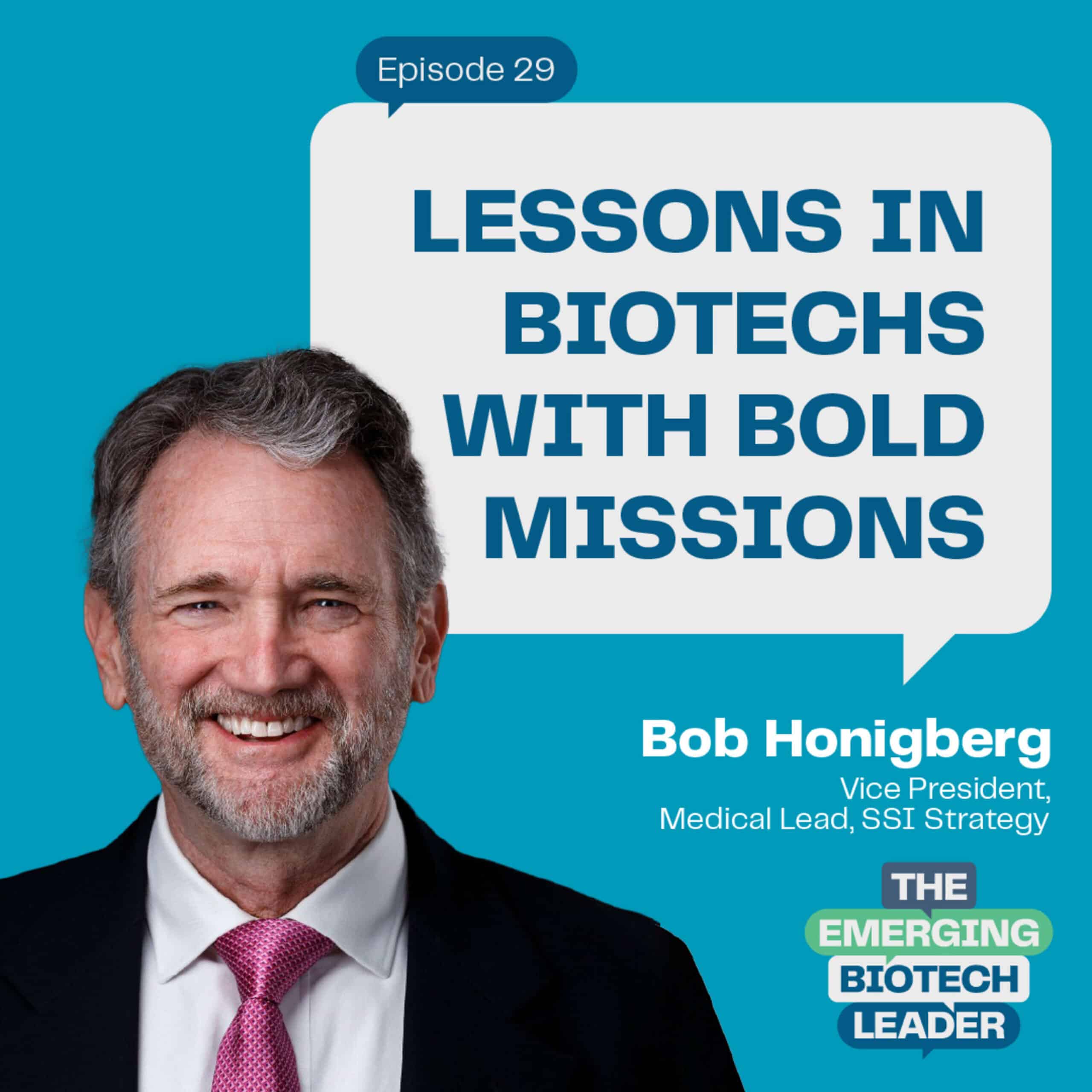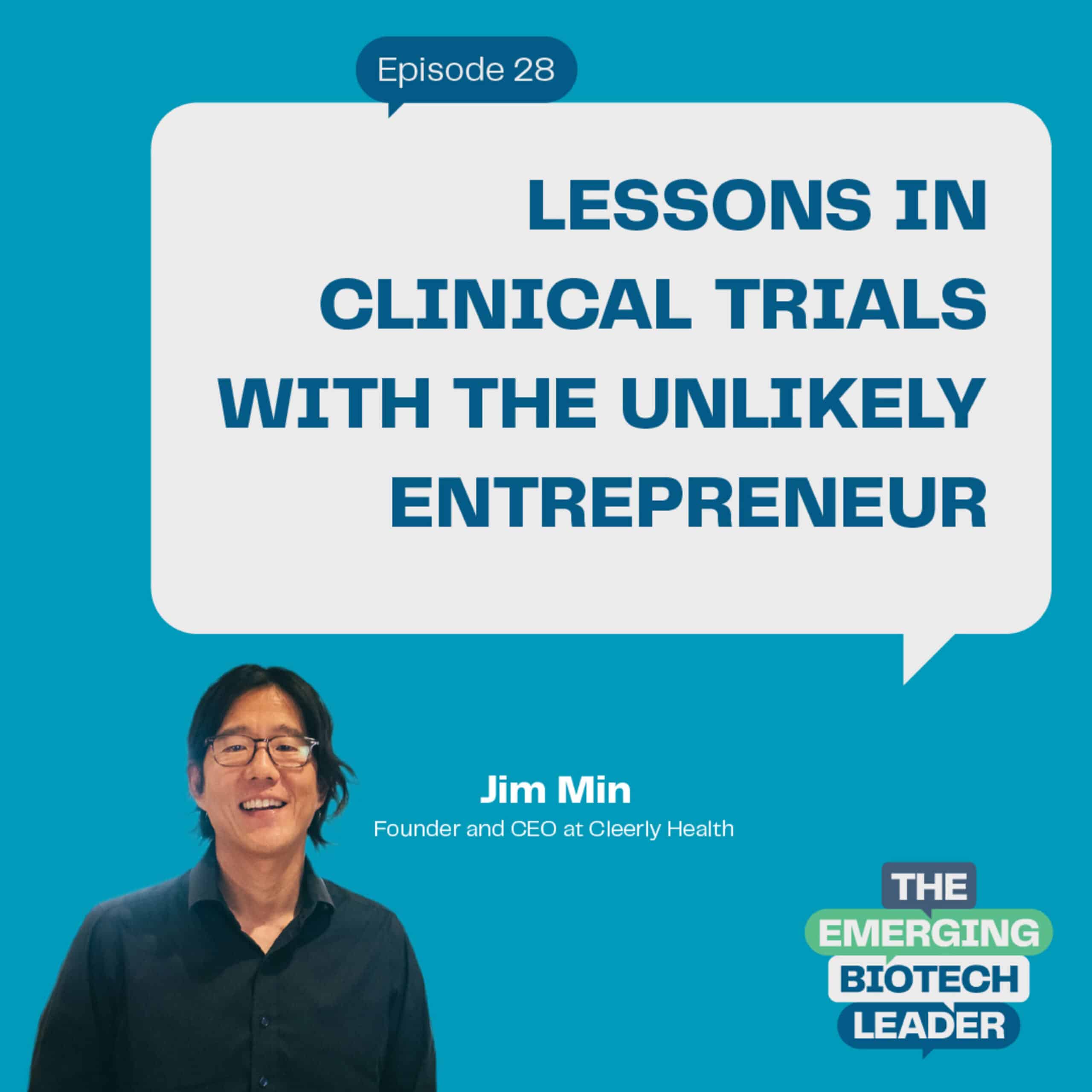
“It’s not always smooth sailing or a straight line path. So being able to address those different inflection points, being able to resource accordingly, flex in, flex out, and really focus on ‘what are the most important priorities?’ Make sure you’re addressing those, the ‘must haves’ versus the ‘nice to haves.’” Jacqui Levine, Vice President, SSI Strategy
Preparing for a biotech launch now or at some point in the future? Then you’ll want to bookmark Episode 23 of the Emerging Biotech Leader, which serves as a mini masterclass on how to think about launching as well as what’s to follow post-launch.
SSI’s Adriana Valenciano, Senior Vice President, is host again alongside Ramin and a new voice to the podcast, Jacqui Levine, Vice President of SSI Strategy. Based on their collective experience, Adriana, Ramin, and Jacqui provide ways to prepare for all stages of launching and how to understand everything that’s required.
As a preview of what’s to come in this discussion, our trio cover:
- The difference (and similarities) between launching in biotech vs Big Pharma
- What role communication plays in the launch process
- How to think strategically and also execute
- Presenting to the board and
- What can put your launch at risk
Share this episode with colleagues and peers–and without further ado, let’s get you into the recap.
On Biotech vs Big Pharma Launches: What’s Different? What’s Similar?
To kick things off, Adriana, Ramin, and Jacqui discussed the distinctions between launching in biotech vs Big Pharma as well as what was similar.
On the latter, Ramin did share that while Big Pharma comparatively has bigger budgets, increased headcount, and brand recognition, the skill of prudence and monitoring one’s P&L with attention and discretion is always table stakes regardless of the launch company’s size. “You will have more resources in Big Pharma, but they aren’t unlimited.”
Given their smaller budgets, biotechs do have to plan for different ways of resourcing while also understanding the constraints they’re facing. This is why Jacqui’s quote about the reality of “rough waters” and accepting that things won’t always be smooth sailing is important to remember.
She adds, “You really need to take a risk-based approach; you can’t do everything all at once. So thinking strategically, planning through the life-cycle of what would be needed as well as being able to account for some of the ups and downs, is key.”
Speaking from several launches and a transition from Big Pharma to biotech himself, Ramin also shared more advice.
“In bringing a new product to market and bringing a new product to patients, there’s a lot of excitement internally, cross-functionally, within medical affairs, within clinical, within commercial. So that’s really a piece that I enjoy in launching a product. I mean, it is very multi-dimensional. It’s not just one focus, and it’s definitely not a straight line. I think one thing that I noticed in the smaller biotech companies with regards to the resources, you really have to be hyper-focused on your execution plan, and you have to sequence them.”
Ramin shares some additional context around the need to be agile and what launching sequentially has to do with the required skill of communication. Make sure to take notes on this topic because he provides a simple yet clarifying framework with questions for you and your team to answer as part of your launch communication plan.
For those who may share a similar professional background to Ramin, having worked in Big Pharma and then pivoted to biotech, he emphasized how essential it is to bring those rigorous planning and collaboration skills to your new, albeit smaller, org. Adriana refers to this as “hyper coordination.”
“You know, we see this often with clients where they’re used to operating with individualized functions that are very productive, but when you get them all together, it can be very challenging to keep them coordinated and aligned to the end goal and the end game, which is that launch. And so, it’s really about creating many more communication channels and pathways so that you’re facilitating a very symbiotic team with clear objectives and plans.”
On Prioritizing Stakeholders and Skills for Launch
The communication theme created a really natural segue for the next topic, which was prioritizing and involving stakeholders.
Jacqui shared that who to focus on depends on a few key things. “Is it a rare disease? Is it going more mass market? What are the nuances of it? Because stakeholders are going to be different depending on the scenario. But, you know, regardless, making sure that the patient is at the forefront of why we’re all doing this–that is critically important.”
Ramin echoed Jacqui’s answer and added: “I think that the two main groups you want to focus on are these: one is the patient advocacy groups and the patients. And the other one is definitely your KOLs.”
Listen in to hear Ramin’s “words to the wise” about avoiding a shotgun approach and how to be a facilitator between these two groups. You can also pick up more tips on being patient first in Episode 18 of The Emerging Biotech Leader.
From a skillset perspective, Jacqui shared how important it is to truly and honestly acknowledge what you and your team can do internally versus where you might want to leverage partners.
And before they moved on to the next topic, which was thinking strategically and also taking action, Adriana said it best when she shared, “Launch planning can be so iterative.”Jacqui then elaborated further. “I think there’s a number of different things that are really important. One is to be able to think strategically, but also to be able to translate that into execution.”
As you execute your launch, one thing you may not anticipate–but can think about ahead of time–is how you’ll manage through setbacks and keep your teams engaged. Be prepared for a variety of scenarios.
Ramin emphasized some final suggestions: you’ve got to be a broad thinker and be receptive to communication reflected towards you. Articulate your points and keep an open mind when people have feedback, especially as you prep to meet and present with the board.
On What Can Put Your Launch at Risk
Planning a launch keeps you focused on the here and now. But how well are you set up for your post-launch efforts? Adrian, Ramin, and Jacqui strongly advise that you think about your post-marketing world, i.e., do you have the infrastructure, compliance, and other pieces required? You can’t just be what they describe as “product ready”–you must be “organization ready,” aka company ready, too.
Adriana articulated this best, given what she has seen in the field, with Ramin helping her complete the thought. “If you’re not ready from many different lenses: P.V., medical affairs, and obviously commercial payers, etc., take note,” which is when Ramin chimed in with–”I think sometimes we confuse launch date and approval date.”
He then added, “Approval date is when the product becomes available for the patients. But the launch of a product starts many, many months, if not a couple of years before that, right? So you have to have that mindset and not confuse the two.”
To hear more on ways to avoid this with your launch, tune into the full episode.
Now that our recap is complete let us know: what topics would you like us to cover next?


